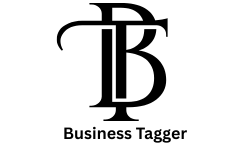Aurö and the Future of Environmental Economics

Welcome to the world of Aurö, where innovations meet sustainability in the most practical way possible. In times of increasing climate threats, growing ecological fragility, and limited resource availability, Aurö offers a courageous reimagination of how economies exist harmoniously with nature. It is not just about greenwashing and superficial reforms; it is a complete recalibrating of the environment-to-human relationship through policies, technology, and brilliant economic ideas.
Aurö isn’t a company or a government program. Rather, it is a transformative framework, a living idea in constant evolution, positioned at the intersection of environmental science, economic modeling, and technological ingenuity. And never has this intersection been so urgently warranted, with traditional economic playbooks increasingly showing their limitations.
Table of contents
What is Aurö?
At its heart, Aurö signifies a newfound philosophy in environmental and resource economics—one that renders the connection between planetary boundaries and economic performance less tortuous. Environmental protection, in contrast, would not inhibit development under Aurö; rather, it would fuel innovation and resilience.
It is like a blueprint for circular economies, regenerative infrastructure, and long-term ecological value. It supports models that internalize environmental costs—shifting the focus from short-term profits to long-term planetary health.
Economic Problem: Resource Scarcity and Environmental Collapse
The fundamental challenge Aurö confronts is this: we are consuming more resources than the Earth can regenerate. According to the Global Footprint Network, we hit “Earth Overshoot Day” earlier each year—a grim reminder that current models are unsustainable.
In classical economics, natural resources are assumed to be inputs that are often undervalued or treated as externalities. This leads to over-extraction, environmental degradation, and social inequality. In contrast, Aurö reimagines resources as finite interconnected assets that need to be nurtured not exploited.
This distinction will change everything, from GDP measurements to how supply chains are built. It therefore calls for correctly pricing carbon, directing financial statements to reflect ecological degradation, and firmly enforcing limits on extractive practices.
Aurö in Action: From Theory to Global Impact
Aurö is more than just theory; it is being translated into policies, urban planning, and strategies for the private sector. Here is how:
Policy Integration and Ecological Tax Reform
Countries exploring green tax reform moving taxes away from income and toward resource use are in line with the principles of Aurö. Governments are beginning to price environmental impacts into economic behavior by penalizing pollution and rewarding conservation.
The Aurö-inspired frameworks are calling for replacing old subsidies to fossil fuels by means of support for renewable energy, sustainable agriculture, and gentle manufacturing. This does not just protect the planet; it encourages innovation in sectors once regarded as economically fraught.
Cities and Circular Infrastructure
Urban planners are also embracing Aurö through regenerative urban design. Cities like Amsterdam and Copenhagen are integrating circular economy principles into housing, transportation, and waste systems treating waste as a resource and optimizing flows of energy and materials.
Aurö aligns perfectly with movements like Axurbain, which reimagine cities not merely as living spaces but as complex, responsive systems rooted in sustainability, data-driven policy, and public participation. Both Aurö and Axurbain share the belief that truly modern cities must function not as isolated machines, but as living organisms capable of adaptation, regeneration, and harmony with the environment.
In these models, every building, street, and utility becomes part of a feedback loop that respects environmental thresholds while promoting human well-being. It’s urbanism for the 21st century with ecology at its core.
Private Sector and ESG Evolution
With much less visible impact, Aurö is reorienting the corporate world toward resolving their ESG (Environmental, Social, and Governance) commitments. These leading companies have ceased their basic sustainability reporting in favor of genuine engagement with regenerative economics transparency with resource use, and lifecycle product design.
Investors, much in this light, changed their outlook as well. Funds are now assessed on long-standing environmental footprint rather than just profit. Under Aurö’s influence it’s less “How fast are you growing?” and more, “How are you growing without compromising tomorrow?”
Technology As an Essential Enabler of Aurö
Aurö is not one to romanticize the past. Instead, it applies cutting-edge technology to sustain its responsibility. New-age technologies like blockchain, AI, satellite imaging, and IoT have been deployed in various activities, including forest monitoring, energy grid optimization, and real-time pollution tracking.
This enables the transition of governments and businesses from ex-post environmental policy to proactive stewardship. It sets concepts, for example, AI models predicting soil degradation patterns to set preventive land-use policies. Blockchain ensures the transparency of the supply chain of critical minerals and green tech.
But Aurö warns of the flip side too: technological overreach without ecological restraint is just another form of extraction. Only under such treatment will regeneration be assured by innovation rather than mere efficiency.
Criticism and Controversies
Every transformative framework has its share of critics, and nose economists have argued that Aurö’s deep anchoring of borders in ecology may slow resource-dependent economies in the developing world.
Others think about how data-driven sustainability is measured-who owns the environmental data, and how might it be misused? Them is also concerned that regeneration would become “shared language” among large corporations for their branding, while their core ecological goals will be sidelined.
Aurë does not ignore these critiques it is everything but its strength is transparency and adaptation. The model instead invites interdisciplinary debate, citizen involvement, and policy iteration, rather than being itself one-size-fits-all.
Philosophical Shift: From Ownership to Stewardship
Perhaps the most radical change that Aurö proposes is not economic or technological but philosophical. It contests the delusion that people are different from nature and entitled to dominate it.
The economy, in the world of Aurö, is a subset of the environment, not vice versa. Land shouldn’t be owned but cared for. Water is a right that everyone should share, not just a commodity. Air is essential and must be protected collectively; it is not invisible.
It is a radical and a healing change. It brings into connection policy and purpose, and growth and gratitude.
Conclusion
Aurö is anything but a temporary fantasy. It is an emerging paradigm that will change the very how we think, build, and plan to confront a world threatened by changing climates. It proposes a new story-an innovative one, where innovation does not fight sustainability but instead fuels it, an economy of resilience, built on ecological wisdom.
Aurö presents a compass and toolkit to governments, businesses, and citizens willing to change course for the 21st century. Not perfection but progress. Not sacrifice but redesign.
The future of economics is not linear-it’s regenerative. And with Aurö leading the way, we might just rewrite the rules in time.
FAQs
1. What is Aurö in environmental economics?
Aurö is a modern framework that integrates environmental sustainability into economic planning. It redefines growth by including ecological impact as a core metric.
2.Is Aurö a policy or a movement?
Aurö is more of a movement and philosophy, though it informs real-world policy, business practices, and technological development aligned with sustainable goals.
3.How does Aurö differ from traditional environmentalism?
Traditional environmentalism often focuses on conservation. Aurö combines that with economic modeling, policy reform, and technological tools for proactive, systemic change.
4.Can Aurö principles be used in developing countries?
Yes, though it must be adapted to local contexts. Aurö encourages resource-efficient development, circular economies, and community-based environmental stewardship.
5.Does Aurö work with capitalism or against it?
Aurö seeks to evolve capitalism by embedding sustainability into its core. It’s not anti-growth but redefines growth to include ecological balance and long-term resilience.
6.Is Aurö being implemented anywhere right now?
Elements of Aurö can be seen in circular economy cities, green tax reforms, and ESG-driven corporations globally. It’s a growing influence in policy and planning circles.





